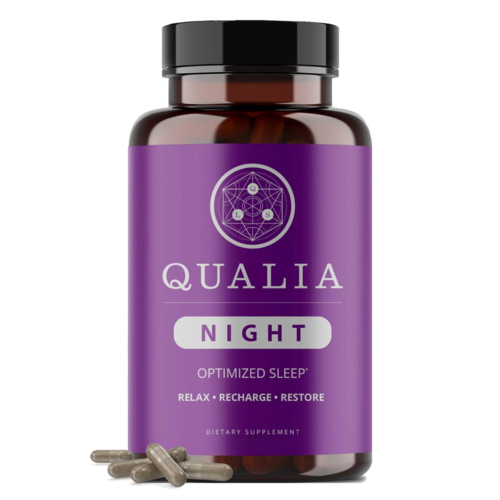Millions of people take melatonin every night believing it’s a safe, natural way to fall asleep. But a shocking new study suggests that long-term melatonin use may do more harm than good — especially for your heart.
A major analysis presented by the American Heart Association (AHA) and published across several medical outlets found that people who used melatonin regularly for at least one year had a 90% higher risk of heart failure than those who didn’t. The study included over 130,000 adults, making it one of the largest investigations into melatonin’s long-term effects ever conducted.
The Study That Shocked the Sleep World
Researchers analyzed electronic health data from 130,000 adults diagnosed with insomnia using the TriNetX Global Health Research Network, which includes medical information from more than 100 healthcare organizations worldwide.
Participants were divided into two groups:
- Melatonin users — those prescribed melatonin for 12 months or longer.
- Non-users — those with insomnia but no recorded melatonin use.
Over five years of follow-up, researchers found:
- 4.6% of melatonin users developed heart failure, compared to 2.7% of non-users — roughly a 90% higher risk.
- Melatonin users were 3.5 times more likely to be hospitalized for heart failure (19% vs. 6.6%).
- All-cause mortality (death from any cause) was 7.8% in melatonin users vs. 4.3% in non-users.
These numbers paint a startling picture: the longer and more consistently people used melatonin, the worse their cardiovascular outcomes became.
Why Would a “Natural” Sleep Aid Harm the Heart?
Melatonin isn’t just a sleep hormone — it’s a circadian regulator that affects nearly every system in your body, including your cardiovascular system.
Here’s what experts believe might be happening:
1. Disruption of Natural Circadian Rhythm
Taking melatonin daily, especially in large doses or at inconsistent times, can desensitize your body’s natural circadian rhythm. Over time, this can throw off the internal clock that governs blood pressure, heart rate, and vascular repair — increasing cardiovascular strain.
2. Inflammation and Oxidative Stress
Ironically, long-term melatonin supplementation may blunt your body’s ability to manage oxidative stress naturally. When that internal balance is disrupted, inflammation rises — one of the key drivers of heart failure and artery damage.
3. Self-Dosing and Unregulated Potency
Unlike prescription drugs, melatonin supplements are poorly regulated. Independent testing has found that the actual amount of melatonin in store-bought capsules can vary by up to 400% from what the label claims.
That means even if you think you’re taking 3mg, you might actually be taking 12mg — every single night.
4. Compounding Risk Factors
Many people using melatonin long-term already suffer from insomnia, stress, poor diet, or lack of exercise — all of which independently raise heart failure risk. The combination of these factors may amplify the problem.
What Experts Are Saying
The American Heart Association’s statement on the findings emphasized caution, not panic:
“Melatonin may not be as harmless as we once thought — especially for those with cardiovascular risk factors,” said study author Dr. Matthew Martinez, a cardiologist with the AHA. “We need more research, but people using it long-term should speak to their doctors.”
Even sleep specialists are surprised.
Dr. Raj Dasgupta, a clinical professor of sleep medicine, told the Washington Post:
“Melatonin can be useful short-term, but the problem is people treat it like a nightly vitamin. It’s not meant to be used that way.”
So What Should You Do If You’ve Been Using Melatonin?
If you’ve been taking melatonin for months or years, this study should be a wake-up call.
You don’t have to quit cold turkey, but you should consider transitioning to natural, body-supportive alternatives that help your sleep cycle — not override it.
Here’s what to do:
1. Support Sleep Naturally with Magnesium
Magnesium is essential for relaxation, muscle recovery, and steady heart rhythm — yet most people are deficient.
Unlike melatonin, magnesium doesn’t disrupt your body’s hormone cycle. Instead, it helps your nervous system unwind naturally, so you fall asleep easily and wake up refreshed.

That’s why I recommend BiOptimizers Magnesium Breakthrough — a premium blend of 7 forms of magnesium designed to restore mineral balance, calm the body, and support heart health at the same time.
Use discount code: healthywildfree to save on your first order.
If you’ve been relying on melatonin, switching to magnesium is a smart and safe first step toward restoring deep, natural sleep — and protecting your cardiovascular system in the process.
2. Balance Your Circadian Rhythm (Without Melatonin)
Your body doesn’t need synthetic melatonin to sleep well — it needs a healthy rhythm.
That’s where Qualia Night from Neurohacker comes in.
This unique formula helps your body produce its own natural melatonin by supporting the entire sleep-wake cycle.
It includes ingredients like tryptophan, magnesium, GABA, and ashwagandha to relax your nervous system, improve sleep quality, and enhance morning alertness — without hormones or sedatives.
If you’ve been dependent on melatonin pills, Qualia Night can help retrain your body to fall asleep naturally again.
Use code HEALTHYWILDANDFREE for an exclusive discount.
3. Lower Inflammation to Protect Your Heart
The melatonin-heart link likely stems from chronic inflammation — one of the key drivers of cardiovascular disease and fatigue.
That’s why reducing systemic inflammation should be part of your strategy.
PaleoValley’s Turmeric Complex delivers organic turmeric root with black pepper and ginger — maximizing absorption of curcumin, nature’s most potent anti-inflammatory compound.
If long-term melatonin use has strained your cardiovascular system, turmeric can help reduce oxidative damage, support healthy blood flow, and protect your heart for the long haul.
The Smart Way to Phase Out Melatonin
If you’re using melatonin nightly, here’s a safe plan to transition off while supporting your heart and sleep:
- Taper down your dose gradually. If you take 5mg, drop to 3mg, then 1mg, then every other night.
- Start supplementing magnesium immediately — it will help offset withdrawal effects like restless sleep or anxiety.
- Adopt good sleep hygiene: no screens 2 hours before bed, consistent bedtime, dark room, morning sunlight exposure.
- Add Qualia Night to rebuild your natural rhythm and support deep restorative sleep.
- Use Turmeric Complex daily to calm inflammation and promote cardiovascular health.
You’ll be sleeping better — and your heart will thank you.
Why Most People Overuse Melatonin
Melatonin was once used sparingly for jet lag or shift work. But in the last decade, it’s become a nightly ritual for millions of Americans — even children.
Unfortunately, studies show that high-dose, long-term use actually suppresses the body’s natural melatonin production, creating a dependency loop.
The irony? The very supplement people take to sleep better may end up making their sleep — and their heart health — worse.
The Bigger Picture: What This Study Really Tells Us
This isn’t just about melatonin — it’s about our collective misunderstanding of “quick fixes.”
Sleep problems often come from stress, mineral imbalance, blue-light exposure, inflammation, and poor routines.
No single pill can fix all that.
But your body is built to heal when supported properly.
When you restore natural rhythms and reduce inflammation, your sleep improves, your energy stabilizes, and your heart grows stronger.
Final Thoughts
This new study on melatonin and heart failure is a powerful reminder that “natural” doesn’t always mean safe.
If you’ve been taking melatonin every night, it might be time to step back and rethink that routine.
Instead, focus on nourishing your body — not sedating it.
Start with:
- BiOptimizers Magnesium Breakthrough — to calm your nervous system and support your heart.
- Qualia Night — to restore your body’s natural sleep rhythm.
- PaleoValley Turmeric Complex — to reduce inflammation and strengthen your cardiovascular system.
Better sleep shouldn’t come at the cost of your heart health.
With the right nutrients, rhythm, and recovery, your body can rest — safely, naturally, and powerfully.
References:
- American Heart Association Scientific Sessions, 2025
- People Magazine: Melatonin Linked to 90% Higher Risk of Heart Failure
- Washington Post: Experts Caution Against Long-Term Melatonin Use
- News-Medical.net: Long-term Melatonin Use Associated With Increased Risk of Heart Failure and Death






